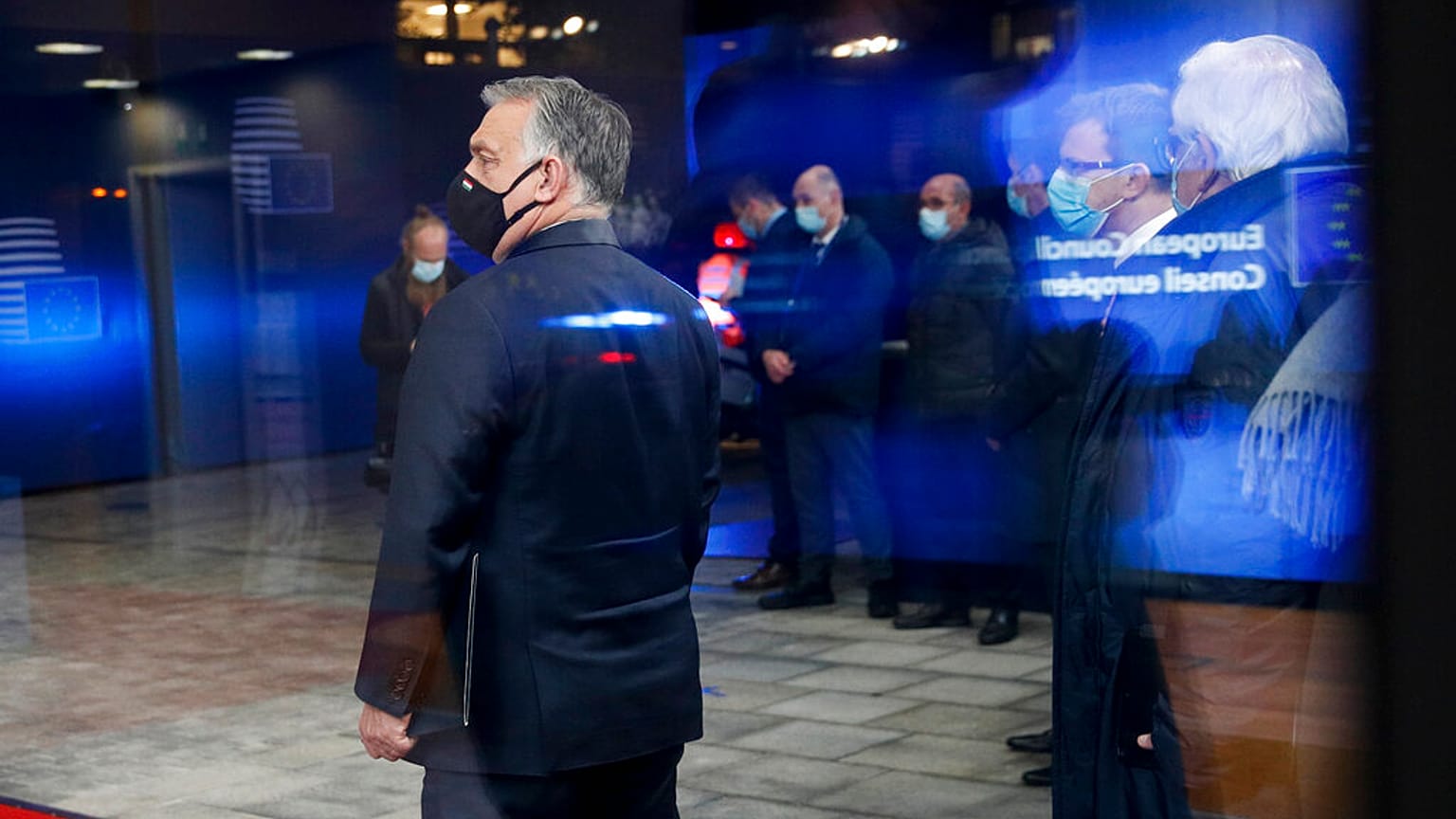In April the European Union could face the first ever significantly rigged vote in one of its member states. A full observation mission should be sent to this year's parliamentary election, warns German Marshall Fund fellow Daniel Hegedüs.
The year 2022 will be a crucial one for democracy and rule of law in the European Union. Hungary’s decade-long process of autocratisation has already wreaked havoc on the EU's democratic image and credentials.
The April 2022 Hungarian parliamentary election offers a fair chance for voters to get rid of the government of Prime Minister Orbán, the EU’s longest-serving illiberal strongman, whose 12-year long rule has transformed a democracy within the EU into a hybrid regime. But this can only happen if the election is conducted in a fair and democratic manner.
A decade of disquiet
Since Orbán came to power in 2010 there has been a lot of wrangling at the European level about the rule of law, shrinking spaces, academic and media freedoms, and the misuse of EU funds in Hungary.
The struggle resulted in countless infringement rulings, European Parliament resolutions, and an ongoing Article 7 procedure against the country - all without any significant impact on domestic authoritarian developments, or impressing Orbán in any way.
But two important aspects of Hungary’s autocratisation were repeatedly overlooked by the EU: the gerrymandered electoral system, and the biased media environment, which gave Orbán’s Fidesz party a strategic advantage. An increasing number of irregularities from one election to the next undermine the integrity of the electoral process.
Free and fair elections are the minimum conditions for a political regime to be considered democratic. Hungary held its last free and fair elections 12 years ago, in 2010.
Ever since then, electoral integrity in Hungary has been in steep decline, with the Organization for Security and Co-operation in Europe (OSCE) labelling the 2014 and 2018 parliamentary elections “free but not fair.”
Election-day irregularities worsening every year
Due to growing popular discontent with Orbán’s regime, the united opposition led by prime ministerial candidate Péter Márki-Zay is actually neck and neck with Fidesz in the polls. However, due to the gerrymandered nature of the electoral system, the opposition needs three to five per cent more votes to gain a majority in the Hungarian parliament.
On the biased media environment and campaigning rules, the OSCE electoral observation mission noted in 2018 that both together created a “pervasive overlap between state and ruling party resources” which undermined “contestants’ ability to compete on an equal basis” and hindered “voters’ ability to make a fully-informed choice”.
Over and above all of these, the likely increase in election-day irregularities should concern Hungary's European and international partners the most.
Election watchdogs documented significant, widespread issues in the April 2018 parliamentary elections, including forged protocols, the intimidation of voters and poll workers, electoral clientelism involving large-scale vote-buying, and the unlawful transportation of voters from neighbouring countries.
Since then, the scale and number of such irregularities has grown, heavily impacting the integrity of the 2019 European Parliament and municipal elections in Hungary.
To add insult to injury, in November 2021 the Orbán government effectively legalised ‘voter tourism’ in Hungary, allowing the manipulation of electoral rolls and the en masse, de facto registration of Hungarian citizens living in battleground districts of neighbouring countries.
To add insult to injury, in November 2021 the Orbán government effectively legalised ‘voter tourism’ in Hungary, allowing the manipulation of electoral rolls and the en masse registration of Hungarian citizens in battleground electoral districts, who are otherwise living in the Hungarian diaspora of neighboring countries.
Against this background, expectations of fair and democratic elections appear to be simply illusory. It is widely expected that in 10 to 15 marginal districts, the difference between the two sides may be fewer than 1000 ballots cast. Due to the closeness of the race, these election-day irregularities will matter.
What the EU should do about it
The European Union might well be facing the first-ever significantly rigged election in one of its member states.
How European institutions and other member states react to this challenge will have a crucial long-term impact on the democratic credentials of the EU, and the integrity of elections in Central and Eastern Europe more generally, Poland in particular.
Europe must be prepared for the eventuality of a rigged election in Hungary. The utmost must be done to avoid it, and due preparations must be conducted how to respond.
EU member states should join the United States in asking Europe’s official electoral watchdog, the OSCE’s Office for Democratic Institutions and Human Rights, to send a full-fledged observation mission to Hungary with hundreds of short-term observers who can properly monitor processes on the day.
Such a mission could deter the regime from worsening election-day irregularities - and even if not, it could play a crucial role in documentation.
Furthermore, European leaders must consider a contingency plan in case Orbán does hold onto power through a rigged election.
Sanctions mechanisms, like the Article 7 procedure, will still be blocked by Poland. Freezing bilateral relations, as happened in 2000 with Austria, and imposing coordinated but national-level sanctions against key stakeholders in the Orbán regime might be the best tool the EU can deploy.
In the 2022 Hungarian elections, European democracy might be approaching its very own Capitol moment. EU institutions and member states should use the available time wisely to prepare for it.
Daniel Hegedüs is Transatlantic Fellow for Central Europe at The German Marshall Fund of the United States.















